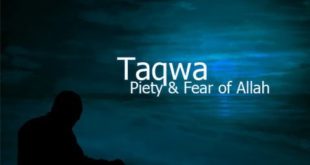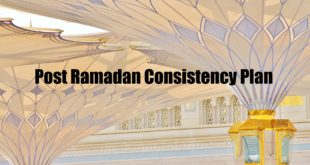| Guest contributor, teenager herself, Fatima Moolla of Timeless Teenz reminds us not to dodge afternoon maktab, no matter how busy we think we are.
We’re at a crises level with so many parents thinking that they don’t need to send their children for Islamic education. All these excuses: “It is time consuming; it’s very stressful; my kids have extra murals and tuition as the grades get higher, and madrassa only makes the load heavier!”
The first institute of madrasa education was at the home of Hazrat Zaid bin Arkam (ra) near a hill called Safa, where our beloved Prophet Muhammad (saw) was the teacher and the students were the beloved sahaba (ra). After Hijrah (migration) the madrasa of “Suffa” was established in Madina on the east side of the Masjid an-Nabawi. Hazrat Ubada bin Samit (ra) was appointed by the Prophet (saw) as a teacher. In the madrassa curriculum there were the teachings of the Qur’an, the ahadith, fara’idh, tajweed, genealogy, treatises of first aid, etc. There were also training in horse riding; the art of war; handwriting and calligraphy; athletics and martial arts.
The famous Persian Islamic philosopher and teacher Ibn Sina (known as Avicenna in the West), in one of his books, wrote a chapter about the maktab entitled “The Role of the Teacher in the Training and Upbringing of Children,” as a guide to teachers working at maktabs. He wrote that children can learn better if taught in classes instead of individual tuition from private tutors, and he gave a number of reasons for why this is the case, citing the value of competition and emulation among pupils, as well as the usefulness of group discussions and debates. ***** Maktab is the very least of Islamic studies you can do, but sadly most parents think that they don’t need to send their children to the afternoon session of maktab, or madrassa. The consequences are however grave, as we all are prone to forgetting what our purpose in life is as a Muslim and servant of Allah Subhanahu wa Ta’ala. A great danger lies in our ignorance of Islamic teachings and our unawareness of what the Quraan and Hadith teaches us. A once-a-week catch up session won’t do. We all know that to learn anything properly, we need daily practice and refreshing. Also, parents are sometimes too busy or distracted to lovingly impart these teachings. At school you get a subject called Life Orientation that supposedly teaches you how to be hygienic and that bathing and cleansing yourself is an important aspect of life. Our kids have to write exams for it. In madrassa however we learn that cleanliness is part of Imaan and we learn exactly how to make ghusal, wudhu and istinja. If it were left only up to “Life Orientation” youngsters today would never learn how cleanliness becomes an ibadah – an act of worship, which obviously reaps rewards.
Youth tend to react to what they have been taught in their homes, colleges and schools and what they read, hear and see in the mass media. If they are taught and nurtured regularly especially via a strong maktab foundation, they will feel, think and react accordingly. Good Islamic education promotes respectability and piety, which leads to success in this world and aakhirah.
If you are doing only school then you are at a bit of a loss. There are no teachers to constantly remind you about who you are, and that you should conduct yourself as a Muslim. There are no Islamic teachers to instruct you to behave modestly with Islamic morals and values. Life is tough enough as it is, and because we are only in the company of those who are in an unIslamic environment, Shaytaan is perpetually whispering in your ears! Maktab, for all the modern complaints about being mundane is a welcome break from that devilish whispering.
We need to open our eyes and see that if we are blessed with the light of Islamic knowledge we will also have the ability to identify and avoid the dangerous paths of Kufr, Shirk and immorality, which may cross us at some stage or the other.
Don’t you think it’s about time that the Muslim Ummah restructures its educational priorities along Islamic lines, fulfilling the existing needs as well? By virtue of such, our easily implementable, daily Islamic educational programmes, the future generations will become the torch-bearers of Islamic values and play an effective role in the world long after we’ve left. Insha Allah.
|
 Jamiatul Ulama KZN Council of Muslim Theologians
Jamiatul Ulama KZN Council of Muslim Theologians





